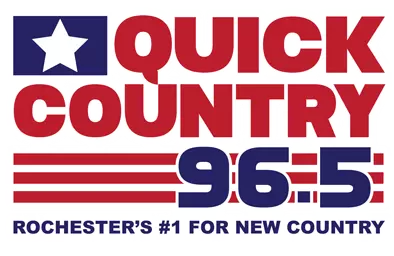
Sorting Out The KTTC / DirectTV Dispute
If you have DirectTV, you already know that our local NBC affiliate, KTTC, is currently "unavailable" on the service. But do you know the back story behind what has lead to the dispute?
As Dr. Phil says, there are always two sides to every pancake. And having once written a term paper on this type of situation when I was a communications major at UW - Eau Claire, here's a little background.
In this situation, there are two parties involved: the Content Providers, and the Carriers. The Content Providers include the channels that create the programming we all watch, whether they're satellite channels, like ESPN or HGTV; or local channels like KTTC or KAAL or KIMT. Then, there are the Carriers-- these include cable companies and the satellite services, like Dish Network and DirectTV.
The Content Providers, especially the local broadcast channels, raise revenue by selling advertising time during the programs they produce. They incur the cost of producing the programs we watch-- whether it's their local news, or national programming (like The Voice) from their networks. They don't make any money directly from viewers-- nobody directly pays a monthly subscription to KTTC or KAAL or KIMT to watch their programs.
The Carriers, however, are just the opposite. They make money by selling their services (which includes improved reception to the local channels, and satellite-only channels like Fox Sports North or HGTV) to local subscribers for a fee each month. They don't create any programming, they only 'rebroadcast' (although it's actually not being broadcast over the air) the same programming the Content Providers have already created.
And there's the rub. The Content Providers feel that it's not fair the Carriers essentially "re-sell" their product, which is why they've negotiated what are called 'carriage agreements' that give Carriers the right to rebroadcast their products. They argue that you don't NEED a Carrier to watch their products. (Which, if you have the right equipment, is true. You can still receive all the local TV channels over the air.) When those carriage agreements expire, however, the Carriers no longer have a legal right to 'rebroadcast' that particular channel until a new agreement is reached. Which is why KTTC isn't on DirectTV right now.
So who's right? I can see both sides. Back when I was a kid in the 70's, there were only basically four TV channels we could watch (ABC, CBS, NBC and public TV), and everybody pretty much watched the over-the-air signal. And, depending upon your antenna, the reception sometimes wasn't all that good. Which is why the cable companies came into existence. They took the sometimes fuzzy over-the-air signal, cleaned it up, amplified it, and essentially resold it to us consumers, who then paid them a fee each month for their service. Over time, of course, they added additional channels you could only get with cable-- like MTV, CNN, etc. Then, things got even more complicated when the satellite services entered the picture and provided some competition to the cable companies, but it's the same scenario playing out.
Bottom line, it seems to me that each party deserves to get compensated. Each have invested many millions of dollars in their business models. Hopefully, they'll work out an agreement that's equitable and fair to both sides. It's just too bad that ultimate consumer -- you and me -- are affected by the process!



